- Home
- Edith Wharton
Ethan Frome, Summer, Bunner Sisters Page 3
Ethan Frome, Summer, Bunner Sisters Read online
Page 3
BIBLIOGRAPHY AND EDITIONS
There is no complete, up-to-date bibliography of Edith Wharton, no complete edition of her letters (and none currently planned), and no complete edition of her novellas and short stories (the editions listed below all have omissions). This list provides the most useful current bibliographies and editions. The current state of Wharton studies and Wharton editions is well covered by Clare Colquitt in her ‘Bibliographical Essay: Visions and Revisions of Wharton’, in A Historical Guide to Edith Wharton, ed. Carol J. Singley, Oxford University Press, 2003.
STEPHEN GARRISON, Edith Wharton: A Descriptive Bibliography, University of Pittsburgh Press, 1990.
KRISTIN O. LAUER and MARGARET P. MURRAY, Edith Wharton: An Annotated Secondary Bibliography, Garland, 1990.
PAUL LAUTER, The Heath Anthology of American Literature, 2002 (contains Edith Wharton’s 1908 love diary, ‘The Life Apart’).
FREDERICK WEGENER, ed., The Uncollected Critical Writings of Edith Wharton, Princeton University Press, 1996.
Edith Wharton: The Collected Short Stories, ed. R. W. B. Lewis, Scribner’s, 1968 (does not include Bunner Sisters).
Edith Wharton: Collected Stories 1891–1910, Collected Stories 1911–1937, ed. Maureen Howard, Library of America, 2001.
Edith Wharton: Ethan Frome, Norton Critical Edition, eds Kristin O. Lauer and Cynthia Griffin Wolff, Norton, 1995 (contains useful critical and background material including Wharton’s own comments on Ethan Frome).
Edith Wharton’s Library: A Catalogue, compiled by George Ramsden, introduction by Hermione Lee, Stone Trough Books, Settrington, 1999.
LIFE AND LETTERS
Since Wharton’s death in 1937 biographical treatments have included a personal and catty memoir (Lubbock), copiously illustrated ‘woman in her time’ approaches (Auchincloss, Dwight), an authorized, pioneering, prize-winning life, with enormous amounts of new materials, for many years the ‘standard’ version (Lewis), feminist and revisionary treatments with significant new materials (Wolff, Benstock), and in 2007 my substantial new account of the life and works. New letters are still coming to light, as in Bratton. Wharton’s own versions of her life are guardedly revealing.
LOUIS AUCHINCLOSS, Edith Wharton: A Woman in Her Time, Michael Joseph, 1971.
SHARI BENSTOCK, No Gifts From Chance: A Biography of Edith Wharton, Scribner’s and Hamish Hamilton, 1994, Penguin Books, 1995.
DANIEL BRATTON, ed., Yrs Ever Affectionately: The Correspondence of Edith Wharton and Louis Bromfield, Michigan State University Press, 2000.
ELEANOR DWIGHT, Edith Wharton: An Extraordinary Life, Harry N. Abrams, 1994.
HERMIONE LEE, Edith Wharton, Alfred A. Knopf and Chatto & Windus, 2007.
R. W. B. LEWIS, Edith Wharton: A Biography, Harper & Row, 1975, Harper Colophon Books, 1977.
R. W. B. LEWIS and NANCY LEWIS, eds, The Letters of Edith Wharton, Simon & Schuster, 1988.
PERCY LUBBOCK, Portrait of Edith Wharton, Jonathan Cape, 1947.
LYALL H. POWERS, Henry James and Edith Wharton: Letters, 1900–1915, Scribner’s, 1990.
EDITH WHARTON, A Backward Glance, Appleton-Century, 1934.
EDITH WHARTON, Novellas and Other Writings (includes Ethan Frome, Summer, ‘Life and I’), ed. Cynthia Griffin Wolff, Library of America, 1990.
CYNTHIA GRIFFIN WOLFF, A Feast of Words: The Triumph of Edith Wharton, Oxford University Press, 1977.
SELECTED CRITICISM
Wharton criticism is a major academic industry in North America, less so in Europe. I list what I have found to be the most useful and interesting examples. References to, or accounts of, Ethan Frome and Summer will be found in almost all these books; Bunner Sisters is much less often mentioned.
ELIZABETH AMMONS, Edith Wharton’s Argument with America, University of Georgia Press, 1980.
DALE BAUER, Edith Wharton’s Brave New Politics, University of Wisconsin Press, 1994.
JANET BEER, Edith Wharton, Writers and their Work, Northcote House Publishers, 2002.
MILLICENT BELL, ed., The Cambridge Companion to Edith Wharton, Cambridge University Press, 1995.
ALFRED BENDIXEN and ANNETTE ZILVERSMIT, Edith Wharton: New Critical Essays, Garland, 1992.
NANCY BENTLEY, The Ethnography of Manners: Hawthorne, James, Wharton, Cambridge University Press, 1995.
CLARE COLQUITT, SUSAN GOODMAN and CANDACE WAID, eds, A Forward Glance: New Essays on Edith Wharton, University of Delaware Press, 1999.
JUDITH FRYER, Felicitous Space: The Imaginative Structures of Edith Wharton and Willa Cather, University of North Carolina Press, 1986.
KATHERINE JOSLIN and ALAN PRICE, eds, Wretched Exotic: Essays on Edith Wharton in Europe, Peter Lang, 1993.
MAUREEN E. MONTGOMERY, Displaying Women: Spectacles of Leisure in Edith Wharton’s New York, Routledge, 1998.
BLAKE NEVIUS, Edith Wharton: A Study of her Fiction, University of California Press, 1953.
JULIE OLINE-AMMENTROP, Edith Wharton’s Writings from the Great War, Florida University Press, 2004.
CLAUDIA ROTH PIERPONT, Passionate Minds, Random House, 2001.
CLAIRE PRESTON, Edith Wharton’s Social Register, Macmillan, 2000.
ALAN PRICE, The End of the Age of Innocence: Edith Wharton and the First World War, Robert Hale, 1996.
CAROL J. SINGLEY, Edith Wharton: Matters of Mind and Spirit, Houghton Mifflin, 2000.
CAROL J. SINGLEY, ed., A Historical Guide to Edith Wharton, Oxford University Press, 2003.
ADELINE R. TINTNER, Edith Wharton in Context, University of Alabama Press, 1999.
JAMES W. TUTTLETON, KRISTIN O. LAUER and MARGARET P. MURRAY, eds, Edith Wharton: The Contemporary Reviews, Cambridge University Press, 1992.
CANDACE WAID, Edith Wharton’s Letters from the Underworld: Fictions of Women and Writing, University of North Carolina, 1991.
EDMUND WILSON, ‘Justice to Edith Wharton’, The Wound and the Bow, W. H. Allen & Co., 1941.
BACKGROUND
These are useful introductions to Wharton’s historical, cultural and intellectual context. Veblen provides an important parallel for her social analysis. Wharton’s short book on other writers’ fictional methods sheds a highly interesting light on her own work.
LOUIS AUCHINCLOSS, The Vanderbilt Era, Scribner’s, 1989.
ERIC HOMBERGER, Mrs Astor’s New York, Yale University Press, 2002.
SCOTT MARSHALL et al., The Mount, Home of Edith Wharton, Edith Wharton Restoration, 1997.
LLOYD MORRIS, Incredible New York, Syracuse, 1951.
JOHN TOMSICH, A Genteel Endeavor: American Culture and Politics in the Gilded Age, Stanford University Press, 1971.
ALAN TRACHTENBERG, The Incorporation of America. Culture and Society in the Gilded Age, Hill and Wang, 1982.
THORSTEIN VEBLEN, The Theory of the Leisure Class, Macmillan, 1899.
EDITH WHARTON, The Writing of Fiction, Scribner’s, 1925.
CHRONOLOGY
——
DATE AUTHOR’S LIFE LITERARY CONTEXT
1861 George Eliot: Silas Marner.
Dickens: Great Expectations.
Rebecca Harding Davis: Life in the Iron Mills.
1862 Edith Newbold Jones born 24 January, in New York City. Elizabeth Barrett Browning: Last Poems.
Turgenev: Fathers and Children.
1863 Elizabeth Gaskell: Sylvia’s Lovers.
Longfellow: Tales of a Wayside Inn.
1864 Tennyson: Enoch Arden.
Trollope: Can You Forgive Her?
Death of Hawthorne (b. 1804).
1865 Whitman: Drum-Taps.
Emerson: English Traits.
Dickens: Our Mutual Friend.
Gaskell: Wives and Daughters.
Lewis Carroll: Alice’s
Adventures in Wonderland.
1866 Family moves to Europe to conserve income in postwar depression. Next six years spent in Italy, Spain, Paris and Germany. Dostoevsky: Crime and Punishment.
Gaskell: Wives and Daughters.
&nb
sp; Eliot: Felix Holt.
Whittier: Snow-Bound.
1867 Arnold: New Poems.
Turgenev: Smoke.
Marx: Das Kapital (I).
1869 Mill: The Subjection of Women.
Browning: The Ring and the Book.
Harriet Beecher Stowe: Old Town Folks.
Flaubert: L’Education Sentimentale.
Tolstoy completes War and Peace.
1870 Death of Charles Dickens.
1871 Darwin: The Descent of Man. Birth of Proust.
HISTORICAL EVENTS
Lincoln US president (to 1865). Ten states secede from Union on the slavery issue. American Civil War (to 1865). Battle of Bull Run: Union forces are completely routed. Britain declares itself neutral in the conflict. Victor Emmanuel II becomes king of a united Italy. Russia abolishes serfdom. Battle of Shiloh – Union forces successful. Battle of Antietam in which 23,000 are left dead on the field. Lincoln proposes that slaves in all states in rebellion against the government should be free on or after 1 January 1863. Greatest battle of the war fought at Gettysburg, Pennsylvania. Colonel Robert E. Lee, commanding the Confederate Army, is forced to retreat. Lincoln’s Gettysburg Address. Bismarck gains power in Prussia.
Lincoln re-elected president. First Socialist International (to 1876).
Assassination of Lincoln. Andrew Johnson president (to 1869). Civil War ends. A general pardon is granted to the South. Negroes given full rights as citizens in the 14th Amendment. No state can come back into the Union unless it ratifies this amendment.
US Reconstruction under way. Petition requesting the franchise signed by 1500 women in Britain, and presented by John Stuart Mill to the House of Commons.
US purchases Alaska from Russia. Building of the first elevated railroad.
Gladstone becomes leader of the Liberal Party in Britain and prime minister the following year (to 1874). Austro-Hungarian empire formed.
Ulysses S. Grant, ablest of Union generals, elected president.
Union Pacific railroad completed.
Rockefeller’s Standard Oil Company begins to corner the market.
The West is opened up. There follows mass cultivation of land, an ever expanding frontier and population growth through immigration. These factors spell the end of the ‘Wild West’.
Two national associations for American women’s suffrage founded.
Suez Canal opens.
Franco-Prussian War (to 1871). Napoleon III defeated at Sedan, dethroned and exiled. Doctrine of papal infallibility.
French Third Republic suppresses Paris Commune. Wilhelm I first German emperor. Bismarck becomes German chancellor. Ku Klux Klan outlawed.
DATE AUTHOR’S LIFE LITERARY CONTEXT
1872 Family returns to United States.
Edith works with governess and reads widely in father’s library. Eliot: Middlemarch.
Turgenev: ‘Spring Torrents’. Nietzsche: The Birth of Tragedy.
1874
1876 James: Roderick Hudson.
Twain: Tom Sawyer.
Eliot: Daniel Deronda.
Death of George Sand.
1877 Secretly completes manuscript of Fast and Loose, a short novel (30,000 words; unpublished). Sarah Orne Jewett:
Deephaven.
James: The American.
Tolstoy completes Anna Karenina.
Birth of Gertrude Stein.
1878 Mother has twenty-nine of
Edith’s poems (Verses) privately printed. Hardy: The Return of the Native.
Stowe: Poganuc People.
1879 Longfellow shows Edith’s poems to William Dean Howells. One poem published in Atlantic Monthly. Edith’s social début in millionaire’s private ballroom on Fifth Avenue. James: Daisy Miller.
Ibsen: A Doll’s House.
1880 Two poems published in New York World. Travels with family to France. Dostoevsky: The Brothers Karamazov.
Death of George Eliot.
1881 James: The Portrait of a Lady; Washington Square.
Death of Dostoevsky.
1882 Father dies in Cannes. Edith inherits over $20,000. Brief engagement to Harry Stevens (his mother opposes the marriage). Twain: The Prince and the Pauper.
Howells: A Modern Instance.
Birth of Virginia Woolf and James Joyce.
1883 Returns to United States with her mother. Briefly becomes close to law student, Walter Berry. He considers marriage, but fails to propose. Edith meets Edward Wharton (Teddy), popular Bostonian and socialite. Twain: Life on the Mississippi.
James: Portraits of Places (travel sketches).
Nietzsche: Thus Spake Zarathustra (to 1892).
Death of Turgenev.
HISTORICAL EVENTS
Grant wins office for a second time.
The Liberals are defeated in British elections. Disraeli becomes prime minister (to 1880). First Impressionist exhibition in Paris.
Alexander Graham Bell invents the telephone.
Death of Wild Bill Hickok (b. 1837) – Western folk-hero.
Presidency of Rutherford B. Hayes (to 1881).
US Reconstruction collapses; southern states impose racist legislation.
Russia declares war on Turkey (to 1878).
Edison invents the phonograph.
Afghan War. Congress of Berlin.
Zulu War.
Standard Oil refines 95% of America’s oil. Invention of the incandescent lamp. 1880s: growth of Women’s Clubs in American cities; labour unrest – almost 10,000 strikes and lockouts; rise of magazines – Cosmopolitan, the Ladies’ Home Journal, McClure’s; electricity for private houses; rise of department stores. Taylor’s ‘time-study’ experiments.
Gladstone becomes British prime minister for a second time (to 1885).
Presidency of James Garfield. Garfield assassinated. Presidency of Chester Arthur (to 1885). Founding of the American Federation of Labor.
Tsar Alexander II assassinated.
Jesse James shot and killed.
First central power plant in New York (Edison, backed by J. P. Morgan).
Married Women’s Property Act in Britain.
Death of Garibaldi (b. 1807) and Darwin (b. 1809).
Death of Marx (b. 1818) and Wagner (b. 1813).
Russian Marxist Party founded.
Brooklyn Bridge opened.
DATE AUTHOR’S LIFE LITERARY CONTEXT
1884 Twain: Huckleberry Finn.
Jewett: A Country Doctor.
Maupassant: Miss Harriet;
Clair de Lune.
1885 Marries Teddy Wharton. Zola: Germinal.
Marx: Das Kapital II.
Howells: The Rise of Silas Lapham.
Maupassant: Bel-Ami.
1886 James: The Bostonians; The Princess Casamassima.
Death of Emily Dickinson.
Stevenson: Dr Jekyll and Mr Hyde.
Tolstoy: The Death of Ivan Illych.
Nietzsche: Beyond Good and Evil.
1887 Mary Wilkins Freeman:
A Humble Romance.
Zola: La Terre.
1888 Edith and Teddy go on a four-month Aegean cruise. Edith inherits $120,000 from a cousin. James: The Aspern Papers.
Birth of Katherine Mansfield and T. S. Eliot.
1889
1890 A story, ‘Mrs Manstey’s View’, is accepted for publication by Scribner’s. James: The Tragic Muse.
William James: Principles of Psychology.
Ibsen: Hedda Gabler.
Wilde: The Picture of Dorian Gray.
1891 Purchases ‘narrow’ house in Park Avenue. Hardy: Tess of the d’Urbervilles.
Gissing: The Odd Women; New Grub Street.
Freeman: A New England Nun.
Dewey: Critical Theory of Ethics.
US International Copyright
Bill improves authors’ finances.
1892 Writes Bunner Sisters (published 1916). Charlotte Perkins Gilman:
‘The Yellow Wallpaper’.
Death of Whitman (b. 1819).
HISTOR
ICAL EVENTS
Presidency of Grover Cleveland (to 1889).
The ‘Great Upheaval’: 700,000 on strike in the US. Demand for eight-hour day. Surrender of Geronimo.
Home Rule Bill for Ireland: Gladstone resigns, to be followed by Salisbury as prime minister (to 1892).
Wilhelm II becomes Kaiser.
Benjamin Harrison, Republican, elected president (to 1893).
Jane Addams establishes Hull Settlement House, Chicago.
Second Socialist International (to 1916).
Eiffel Tower built in Paris.
Census: US population 63 million. Enumerators instructed to distinguish between ‘blacks’, ‘mulattoes’, ‘quadroons’ and ‘octoroons’. New constitution of the state of Mississippi prohibits inter-racial union (the prohibition stands for seventy-five years). Depression: drastic fall in agricultural prices. Bismarck resigns.
Carnegie Hall opens in New York.
Financier Jay Gould dies worth $77 million.
Gladstone, now in his eighty-third year, becomes prime minister for a fourth time (to 1894).
DATE AUTHOR’S LIFE LITERARY CONTEXT
1893 Buys Land’s End, on Atlantic front at Newport. Becomes friends with French novelist, Bourget. Stephen Crane: Maggie: A Girl of the Streets.
Sarah Grand: The Heavenly Twins.
Death of Maupassant (b. 1850).
1894 Travels in Italy. Depression and illness interfere with writing. George Moore: Esther Waters.
Chopin: Bayou Folk.
Twain: Pudd’nhead Wilson.
1895 Stephen Crane: The Red Badge of Courage.
Grant Allen: The Woman Who Did.
Wilde: The Importance of Being
Earnest; An Ideal Husband.
1896 Eight-month trip to Europe. Hardy: Jude the Obscure.
Jewett: The Country of the Pointed Firs.
Chekhov: The Seagull.
Birth of Scott Fitzgerald.
1897 Publishes The Decoration of Houses with architect Ogden Codman. Grand: The Beth Book.
Chopin: A Night in Acadie.

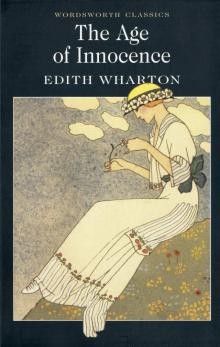 The Age of Innocence
The Age of Innocence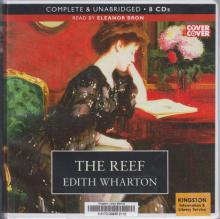 The Reef
The Reef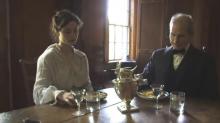 Summer
Summer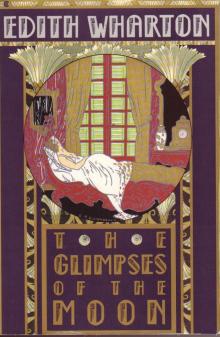 The Glimpses of the Moon
The Glimpses of the Moon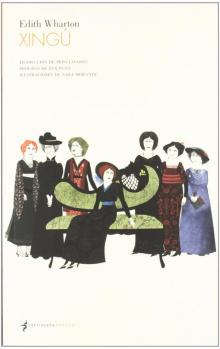 Xingu
Xingu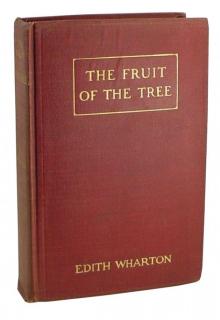 The Fruit of the Tree
The Fruit of the Tree Fast and Loose
Fast and Loose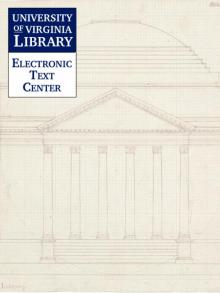 Artemis to Actaeon and Other Verse
Artemis to Actaeon and Other Verse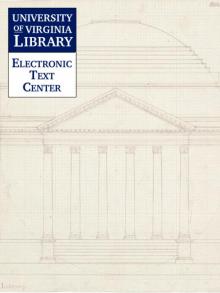 The Line of Least Resistance
The Line of Least Resistance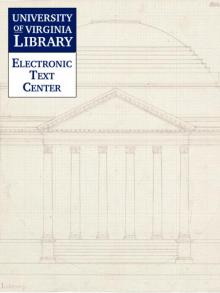 The Lamp of Psyche
The Lamp of Psyche The Reckoning
The Reckoning Afterward
Afterward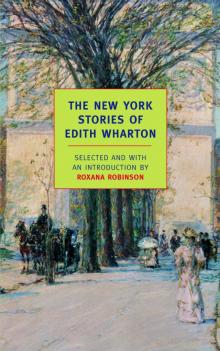 The New York Stories of Edith Wharton
The New York Stories of Edith Wharton The 2014 Halloween Horrors Megapack
The 2014 Halloween Horrors Megapack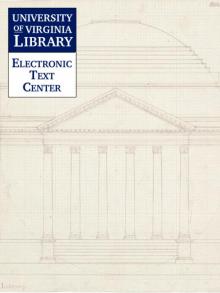 'Copy': A Dialogue
'Copy': A Dialogue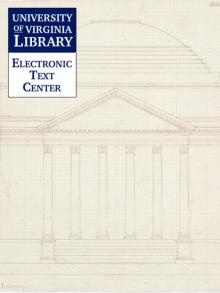 The Recovery
The Recovery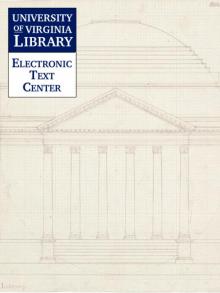 The Fulness of Life
The Fulness of Life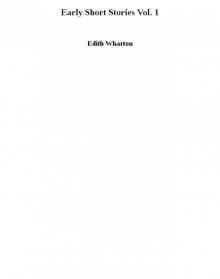 Early Short Stories Vol. 1
Early Short Stories Vol. 1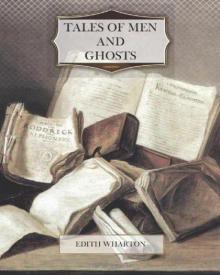 Tales of Men and Ghosts
Tales of Men and Ghosts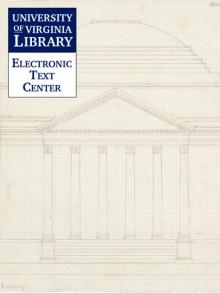 The House of the Dead Hand
The House of the Dead Hand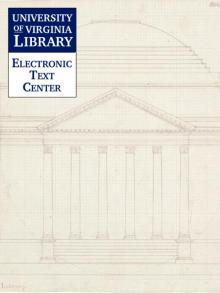 That Good May Come
That Good May Come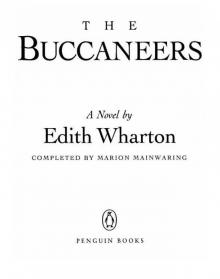 The Buccaneers
The Buccaneers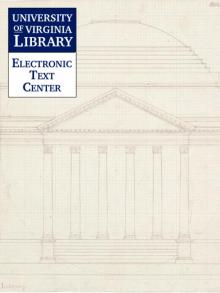 Other Times, Other Manners
Other Times, Other Manners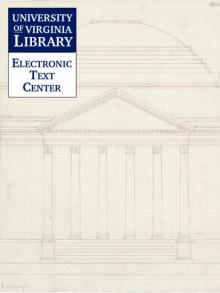 The Hermit and the Wild Woman
The Hermit and the Wild Woman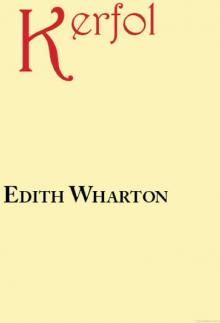 Kerfol
Kerfol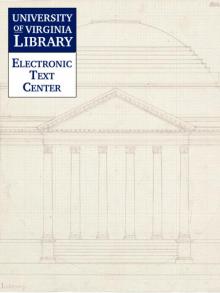 The Duchess at Prayer
The Duchess at Prayer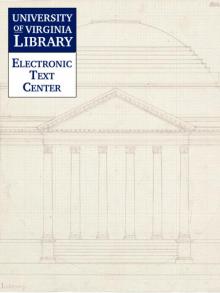 Bunner Sisters
Bunner Sisters The Choice
The Choice Madame De Treymes
Madame De Treymes Ethan Frome, Summer, Bunner Sisters
Ethan Frome, Summer, Bunner Sisters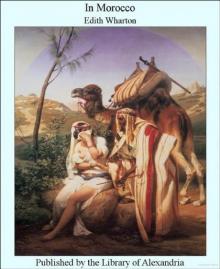 In Morocco
In Morocco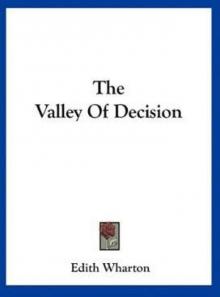 The Valley of Decision
The Valley of Decision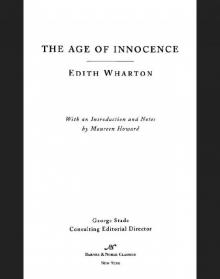 Age of Innocence (Barnes & Noble Classics Series)
Age of Innocence (Barnes & Noble Classics Series)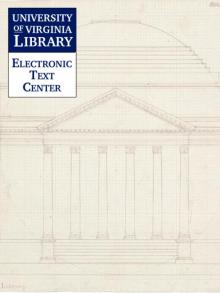 The Angel at the Grave
The Angel at the Grave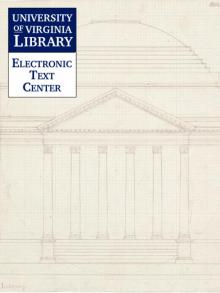 April Showers
April Showers Sanctuary
Sanctuary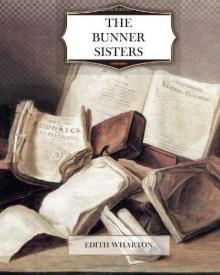 The Bunner Sisters
The Bunner Sisters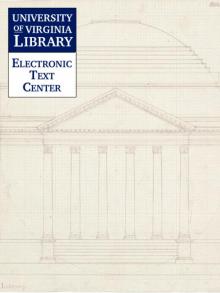 Mrs. Manstey's View
Mrs. Manstey's View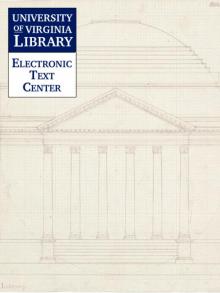 Writing a War Story
Writing a War Story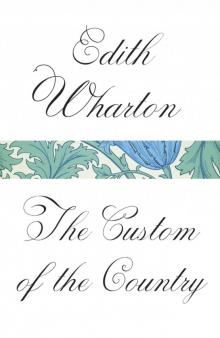 The Custom of the Country
The Custom of the Country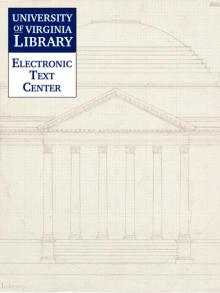 In Trust
In Trust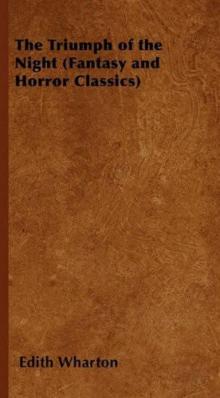 The Triumph of the Night
The Triumph of the Night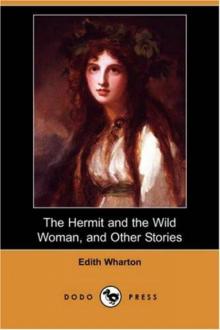 The Hermit and the Wild Woman, and Other Stories
The Hermit and the Wild Woman, and Other Stories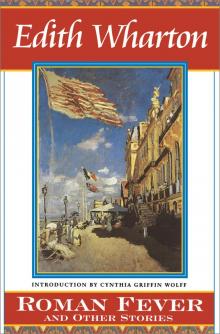 Roman Fever and Other Stories
Roman Fever and Other Stories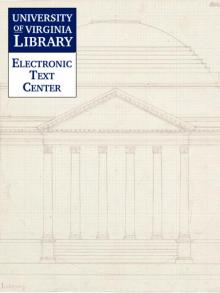 The Mission of Jane
The Mission of Jane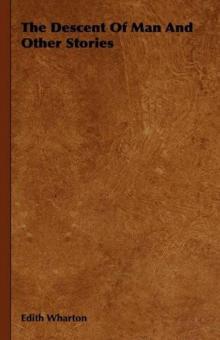 The Descent of Man and Other Stories
The Descent of Man and Other Stories Coming Home
Coming Home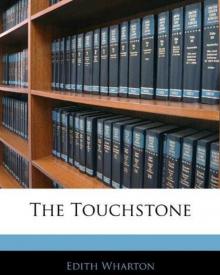 The Touchstone
The Touchstone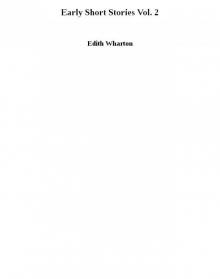 Early Short Stories Vol. 2
Early Short Stories Vol. 2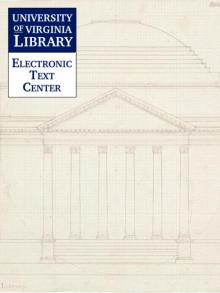 Edith Wharton's Verse, 1879-1919, from various journals.
Edith Wharton's Verse, 1879-1919, from various journals.